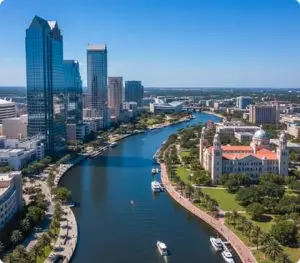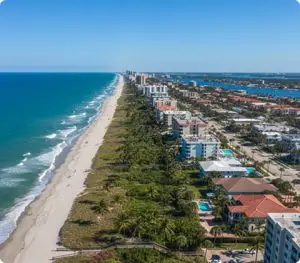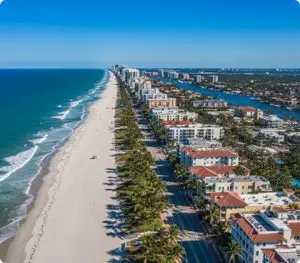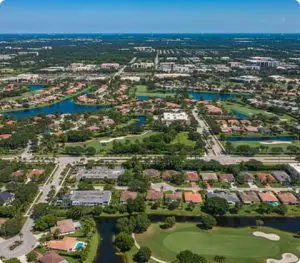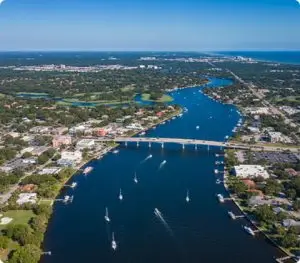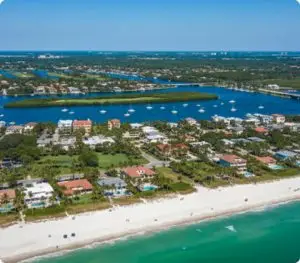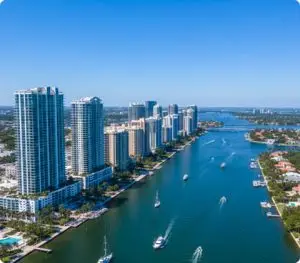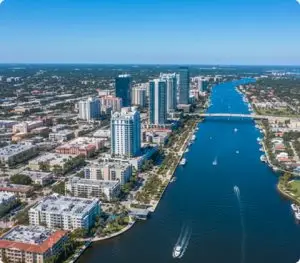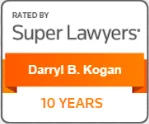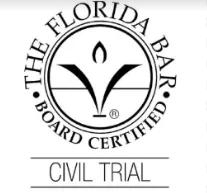Table of Contents
In Vero Beach, if you are injured while on the job or get sick due to a job-related illness, you would usually rely on workers’ compensation to pay your medical bills and a percentage of your wages. Because these claims are often denied or lowballed, hiring a workers’ compensation lawyer in Vero Beach is wise to protect your rights. At Kogan & DiSalvo, our Vero Beach injury lawyers fight so that you may receive the benefits you deserve. When you need a full-service law firm that takes cases on a contingency basis, you can depend on our team.
What is Workers’ Compensation?
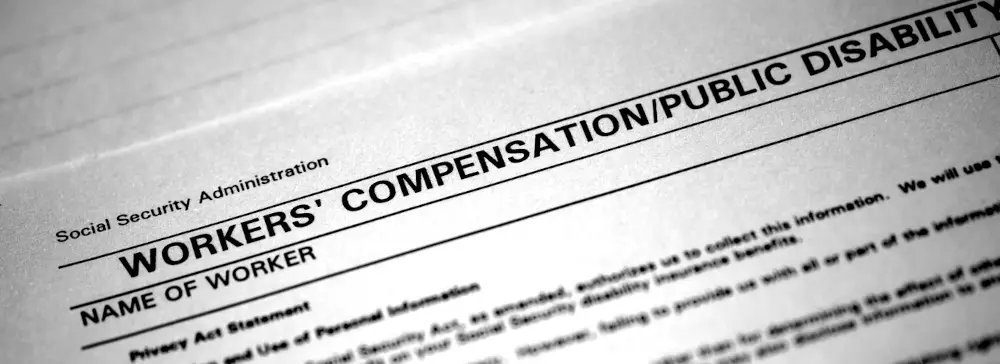
As per the Florida Office of Insurance Regulation, state law requires most employers to purchase workers’ compensation insurance for employees, which is a no-fault system. If injured on the job, employees receive wage compensation and medical treatment. In most cases, the employee cannot file a personal injury lawsuit against their employer. Both full-time and part-time employees qualify for benefits.
Under Florida law, any business outside of agriculture or construction with at least four employees must carry this coverage. In addition, agricultural businesses must provide workers’ compensation if they employ at least six regular or 12 seasonal workers. Construction is one of the most dangerous occupations, so these companies, with even one employee, must purchase it. Finally, Florida does not cover work-related “nervous or mental injury.”
The following exceptions apply to workers’ compensation eligibility:
- Self-inflicted injuries
- Injuries that occur when the worker is under the influence of alcohol or drugs
- Injuries resulting from illegal activities
Types of Workers’ Compensation Benefits in Florida

There are four categories for Florida workers’ compensation benefits when it comes to wage replacement:
1. Temporary Total Disability (TTD) – The worker cannot perform any work but is expected to recover. TTD benefits equal 66 2/3 percent of your average weekly wage, up to a 2023 maximum compensation rate of $1,197. Rates are adjusted annually. These benefits end after reaching Maximum Medical Improvement (MMI). This is when the person’s condition stabilizes, and no further improvement is expected, even if the patient continues receiving medical or rehabilitative therapy. Benefits also end once the doctor clears a worker to return to work or the TTD period is over.
2. Temporary Partial Disability (TPD) – Returning to work is possible, but the employee will be under certain restrictions. These wage replacement benefits are 80 percent of your average weekly wage pre-injury and your current earnings.
3. Permanent Total Disability (PTD) – Those unable to work again due to injuries may qualify for PTD. Keep in mind that these benefits are available only after reaching MMI.
4. Permanent Partial Disability (PPD) – While the person is disabled permanently, they are still able to perform certain types of jobs. Benefits depend on the severity of the disability. However, they last only until age 75 or death, whichever comes first.
How Long Does Workers’ Compensation Last?
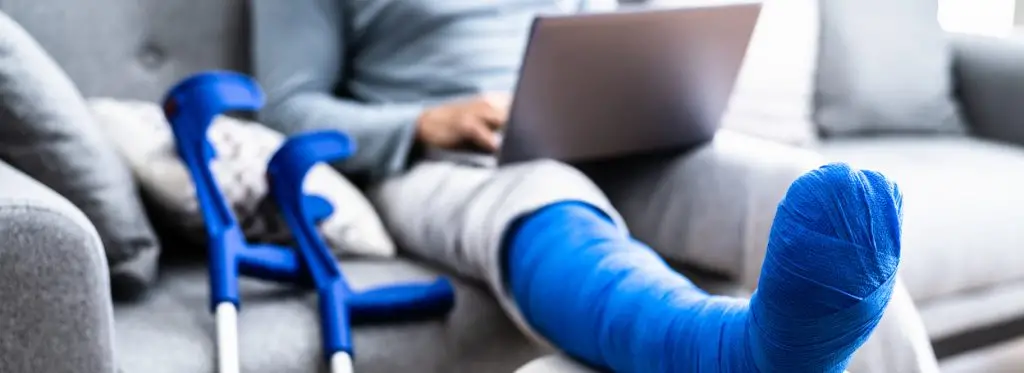
In Florida, workers’ compensation can last up to 104 weeks or two years. An injured worker may receive Temporary Total, Temporary Partial Disability payments, or a combination of the two during this period. At the end of this period, a worker’s permanent impairment is determined by a physician. This evaluation cannot occur until the worker has reached MMI or six weeks before the end of the temporary 104-week benefits.
To qualify for PTD, the person must prove they are incapable of performing sedentary work within a 50-mile radius of their home or have suffered a catastrophic injury.
What Does Workers’ Compensation Cover?

Workers’ compensation covers the following:
- Medical payments–Your employer or its insurance company authorizes a medical provider to provide all treatments. That includes surgeries, prescriptions, office visits, rehabilitation, and assistive equipment. You do not pay any of these medical bills. In addition, you cannot visit an outside provider.
- Lost wages–While not working, you do not owe taxes on workers’ compensation wage benefits. If you return to work under TPD or PPD, you must pay taxes on the wage made while on the job.
- Disability benefits–Florida law prohibits payment for the first seven days of disability. Should the disability extend for more than 21 days, the insurance company may also pay for those initial seven days. In most cases, injured workers receive their initial checks within 21 days of reporting the injury to the employer.
- Specific loss benefits–Workers suffering specific losses, including amputation, loss of an organ, or severe head and neck disfigurement, may receive loss benefits.
- Vocational benefits–If the nature of the injury is such that the worker cannot return to their previous job, vocational training prepares them for work in another field or industry.
Should a worker succumb to workplace injuries within one year of the accident or five years of continuous disability, family members may receive death benefits. These benefits pay for reasonable funeral and burial expenses, weekly payments to eligible dependents, and educational benefits for a surviving spouse. Payments are based on a percentage of the late worker’s wage before their injury or illness.
Common Onsite Incidents Leading to Workers’ Compensation

Common onsite incidents leading to workers’ compensation claims include:
- Accidents with tools
- Material-handling accidents
- Repetitive motion
- Slip and falls
- Struck by equipment or object
Not all worker’s comp-eligible injuries occur on the job site. For example, if you are traveling for work or meeting with a client when injured, that will still qualify as a work-related injury.
What to Do If Your Workers Compensation Claim is Denied

If your workers’ compensation claim is denied, seek legal advice at once. You can try to resolve the dispute with the insurance company directly, but if it is not approved, you must file a Petition for Benefits with the Office of the Judges of Compensation Claims. You usually have two years from the date of your injury or illness to file the petition.
Workers’ Compensation Limitations
Injured workers have a two-year statute of limitations from the injury date or the date on which they should have reasonably known they were injured in which to file a claim. The insurance company can deny any claim filed beyond the statute of limitations based on a request to the court for dismissal.
Options to Sue Beyond Workers’ Compensation
A catastrophic injury is not uncommon in the workplace. The nature of this injury is that the victim will never fully recover. When the injury occurred because of gross negligence on the part of the employer, safety breaches by the employer or another worker, or the negligence of third parties, the victim may go outside of the workers’ compensation system and file a personal injury lawsuit.
How Kogan & DiSalvo Can Help Injured Workers in Vero Beach
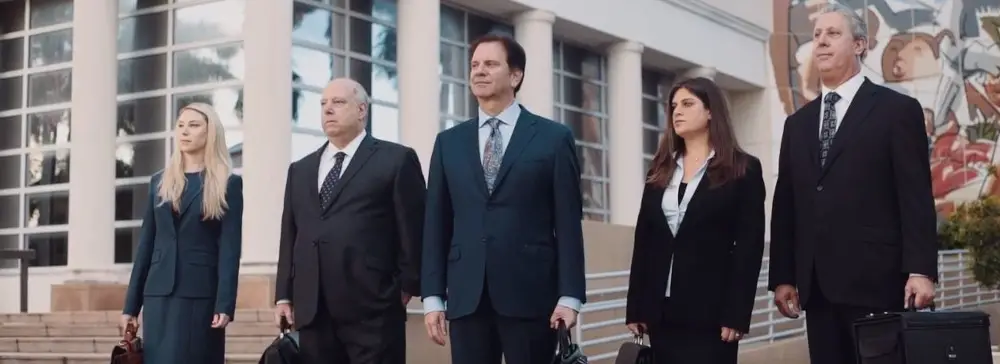
A Vero Beach personal injury lawyer at Kogan & DiSalvo can help injured workers receive the full compensation they deserve. Schedule a free, no-obligation consultation today. We can help you navigate the often complicated claims procedure. You pay no legal fees unless you receive benefits.
 (800) 707-9111
(800) 707-9111
 Call
Call


